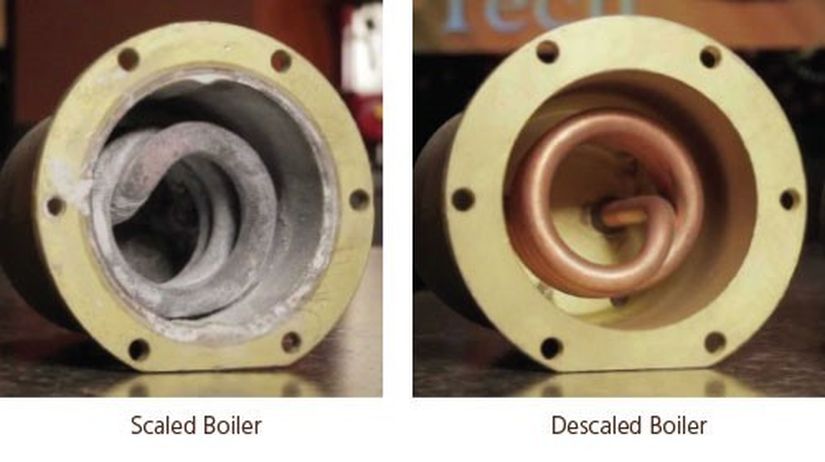Figuring out the right water to use doesn’t have to be complicated. We are primarily looking for clean, filtered water that has some but not too much mineral content. To start, we recommend using water hardness test strips. These test strips will allow you to measure exactly how hard your water is.
In general, we recommend using a water softener if you get a measurement above 85 parts per million (PPM) or 5 grains per gallon (GPG). Please note, some mineral content (above 35 PPM) is necessary for the best-tasting espresso, and also for the machine to run without overfilling the boilers.

For most optimal results, the Specialty Coffee Association of America recommends hardness above 35ppm and below 85ppm.
Checking your water hardness is critical because water that is too hard can cause excessive scale buildup inside your machine. This will reduce heating efficiency, can clog water passages, lead to inaccurate readings from temperature and level probes, and cause failure of valves and seals which can cause a mess on your countertop.


The other basic requirement is filtration. This removes solids from the water, such as tiny pieces of dirt, rust, or grit. Additionally, water filters can reduce chlorine and other tastes and odors. Even if your water looks clean, there will still be a small amount of particulate matter that passes through, and this can lead to clogged water passages and leaking seals.
When water filtration and softening are properly dealt with your espresso machine will serve you well for years with minimal maintenance.